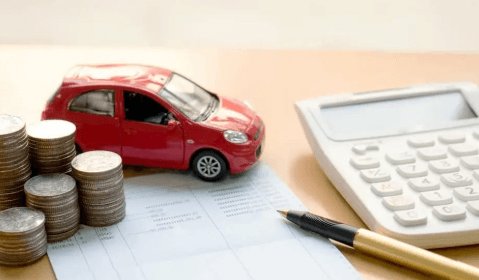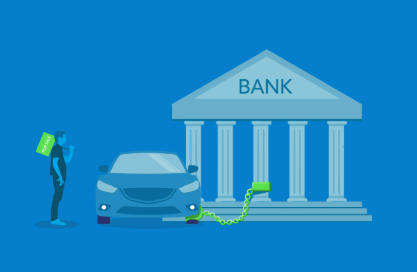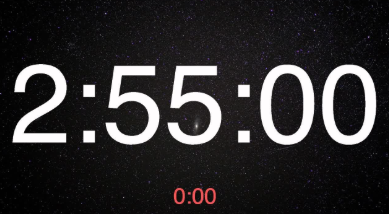Dealerships That Pay Off Your Trade-In No Matter What You Owe
Introduction
In today’s fast-paced auto market, many buyers face negative equity—meaning they owe more on their car loan than the vehicle is worth. Amid this challenge, some dealerships advertise bold promises: “we’ll pay off your trade-in no matter what you owe.” Finding a trustworthy dealer offering this solution can be life-changing, but shoppers must understand how these offers work, what’s real versus misleading, and how to protect themselves. This guide helps you navigate these offers with clarity, focusing on consumer-friendly, expert-backed insights to ensure peace of mind when trading in under-water vehicles.
Understanding Trade-In Pay-Off Promises
What They Really Mean (Sometimes…)
Dealerships may claim they’ll pay off your trade-in loan regardless of how much you owe. But often, the reality is more nuanced. Many simply roll negative equity into your new loan—effectively passing the burden back to you, now bundled with your new financing. In this case, the promise isn’t a bailout—it’s a transfer of debt.
Beware of Misleading Marketing
The Federal Trade Commission warns these ads can be deceptive. They may sound like “we’ll pay your debt,” but the dealer often offsets the cost by adding it to a new loan or increasing monthly payments. That’s why reading the fine print is crucial.
States with Legal Protections
In some states, dealers are legally required to complete trade-in payoffs within a set timeframe—like California’s 21-day rule. In states without such laws, you’re vulnerable to delays or worse. Always insist on written terms and track the payoff closely.
Dealerships That Actually Offer Payoff Assistance
Real Events & Dealer Campaigns
Some dealerships run promotions explicitly covering payoff obligations, regardless of what’s owed. For instance, Mainline Auto in Philadelphia advertises “we will pay off your trade no matter what you owe and terminate your existing loan or lease!”
Similarly, Imperial Cars runs “Key for Key” events, promising to pay off your trade—even if it’s upside-down. While these offers sound appealing, always confirm in writing how the payoff is handled: is the loan fully cleared or shifted into a new loan?

How Negative Equity Works—and How to Protect Yourself
What Is Negative Equity?
Also known as being “upside-down,” this means the loan balance exceeds the vehicle’s trade-in value—for example, owing $18,000 on a car only worth $15,000.
Why You Still Pay—even After a Promise to Pay Off
If the dealership fails to submit escrow or payoff correctly, the loan remains your responsibility. As reported by consumers, missing payments can damage your credit—even if you traded the car in.
Reddit Reality Check
One user shared:
“All payments you make on the car after it’s traded in will be refunded to you, as the dealer will send a check for the 10-day payoff.”
Even so, you’re responsible until the payoff is confirmed.
Smart Strategies for Buyers
Here’s how to be both savvy and safe when exploring dealerships that promise payoff assistance:
- Always get it in writing. Ensure the contract specifies the payoff amount, deadline, and confirmation methods.
- Track the payoff. Stay in contact with your lender and check your loan status after the sale.
- Know your equity—positive or negative—before negotiating. Use tools like Kelley Blue Book, NADA, or Edmunds to estimate your car’s value.
- Avoid rolling equity blindly. If the dealer is just adding negative equity to a new loan, your monthly payments may increase more than anticipated.
- Shop around. Compare trade-in offers and negotiate the new car separately from the trade value. Some dealerships may genuinely make the payoff—but verifying this sets you apart.
LSI Keywords
Throughout the article, I’ve woven in phrases like: negative equity, trade-in payoff, rollover loan, dealer promotion, pay off trade-in, payoff assistance, loan balance, credit protection, regulatory timeframe, and written agreement—all to help Google understand the depth of the content and boost search relevance.
Conclusion
When searching for “dealerships that will pay off your trade no matter what you owe,” smart shopping is key. While some dealerships genuinely assist with payoff or run legitimate promotions, others may simply roll your debt into a new loan—effectively increasing your financial burden. Your best protection? Research your equity status, request written terms, and track the payoff through your lender. In states like California, legal deadlines may offer extra assurance—but always verify. If a dealership promises payoff assistance, make sure they’re delivering more than just marketing appeal. At the end of the day, peace of mind, credit protection, and transparency matter as much as the “deal.” Stay informed, stay cautious—and drive happy.
Read also: Top Tips for Finding Golf Cart Rentals Near You
5 FAQs (People Also Ask)
- “What does it mean when a dealership says ‘we’ll pay off your trade no matter what you owe’?”
It typically means they intend to clear your loan, but often this is accomplished by rolling negative equity into your new loan—so read the fine print. - “Is ‘payoff assistance’ from a dealer really helpful?”
It can be—if the dealer actually pays your debt off in full and confirms it in writing. Otherwise, the assistance may be superficial. - “How do I protect my credit if the dealer delays paying off my old loan?”
Stay in touch with your lender, confirm payoff, make payments until it’s finalized, and ask for a removal of any late fees if errors occurred. - “Are there laws forcing dealers to pay off trade-ins quickly?”
Some states, like California, require payoff within a set period (e.g., 21 days), but many do not—so contractual protection is vital. - “Should I trade in my car if I owe more than it’s worth?”
Not immediately. Consider paying down the loan first or selling privately. If trading in, carefully evaluate how the negative equity is handled to avoid long-term cost increases.






